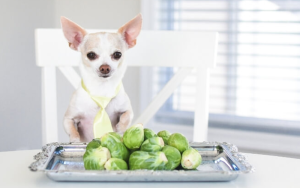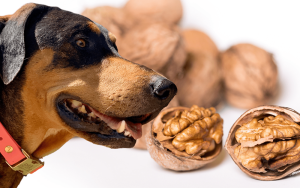Why Does My Cat Puke After Eating? Causes, Solutions, and Prevention Tips

Introduction:
If you’ve ever watched your beloved feline friend eat and then suddenly vomit shortly afterward, you might have wondered what could be causing this issue. Cat owners often experience the frustrating and unsettling sight of their pets vomiting after meals,
and it’s a common concern among cat lovers. While occasional vomiting can be normal, frequent regurgitation may indicate an underlying problem that requires attention.
In this comprehensive article, we’ll explore the possible reasons why your cat might be puking after eating. From eating too quickly to more serious medical conditions, we will cover everything you need to know to keep your cat healthy and happy. Plus,
we’ll provide practical tips and solutions to help you manage or prevent this behavior. Whether you’re a new cat owner or an experienced pet parent, this guide will equip you with the knowledge to address your cat’s vomiting issues effectively.
Common Causes of Cat Vomiting After Eating:
- Eating Too Quickly:
One of the most common reasons why cats vomit after eating is that they eat too quickly. Cats that gulp down their food rapidly often ingest large amounts of air along with their meal. This can lead to stomach upset, causing them to vomit shortly afterward.
It’s especially common in cats that are very hungry or in multi-cat households where competition for food is high.
Solution:
To prevent this, consider using slow-feed bowls or puzzle feeders that make your cat work for their food. These bowls have a design that slows down their eating speed, reducing the chances of vomiting.
- Hairballs:
Hairballs are another common culprit behind a cat’s vomiting, particularly in long-haired breeds. Cats groom themselves by licking their fur, which can lead to the ingestion of hair. In some cases, this hair builds up in the stomach and forms a hairball
that the cat later vomits up.
Solution:
Regular grooming is key to preventing hairballs. Brushing your cat frequently helps remove loose fur, reducing the amount they swallow. Additionally, special hairball control cat food and treats are available to help reduce
hairball formation.
- Food Sensitivities or Allergies:
Just like humans, cats can develop sensitivities or allergies to certain ingredients in their food. If your cat has food allergies or intolerances, their digestive system may react negatively, leading to vomiting. Common allergens include dairy, fish,
beef, and certain grains.
Solution:
If you suspect your cat has a food sensitivity, consult with your veterinarian to identify the problematic ingredient. Switching to a hypoallergenic or grain-free cat food may resolve the issue. Conducting an elimination
diet under a vet’s supervision can also help pinpoint the exact cause.
- Gastrointestinal Issues:
Cats can suffer from a range of gastrointestinal problems that can lead to vomiting, such as gastritis, inflammatory bowel disease (IBD), or even gastrointestinal infections. These conditions may cause inflammation or irritation in the stomach, leading
to regurgitation.
Solution:
If your cat’s vomiting is persistent or accompanied by other symptoms like diarrhea, weight loss, or lethargy, it’s important to consult your vet. A thorough diagnosis, possibly including blood work, X-rays, or an ultrasound,
will help determine the cause and appropriate treatment.
- Overeating:
Sometimes, cats vomit after eating because they’ve overeaten. Overeating can stretch the stomach and cause discomfort, leading to vomiting. This is more common in cats that are allowed to eat freely or those that have access to an unlimited amount of
food.
Solution:
If your cat is prone to overeating, consider feeding them measured portions at regular intervals. You can also try dividing their daily food intake into smaller, more frequent meals.
- Sudden Change in Diet:
Introducing a new food too quickly can disrupt your cat’s digestive system. Cats are creatures of habit, and sudden dietary changes can cause digestive upset, leading to vomiting. Whether you’ve changed their brand of food, switched from wet to dry food,
or introduced a new flavor, the transition should be gradual.
Solution:
When switching cat food, do so slowly over the course of about a week. Start by mixing small amounts of the new food with the old and gradually increase the proportion of the new food while decreasing the old food. This will
allow your cat’s digestive system to adjust.
- Toxins or Foreign Objects:
Cats are naturally curious, and they may ingest objects or substances that they shouldn’t. If a cat eats something toxic or a non-food item (like string, plastic, or plants), their body will often try to expel the foreign material by vomiting.
Solution:
Keep potentially dangerous substances out of your cat’s reach. If you suspect your cat has ingested something harmful or unusual, contact your vet immediately for advice. Poison control hotlines are also available in emergencies.
- Stress and Anxiety:
Cats are sensitive animals, and stress can manifest in a variety of physical symptoms, including vomiting. Changes in the household, new pets, or even environmental changes can cause your cat to become anxious and vomit.
Solution:
Providing a calm and stable environment for your cat is crucial. Try to minimize stressors and give your cat a quiet, safe space to retreat when they feel overwhelmed. Some cats benefit from pheromone diffusers or calming
products designed to reduce stress.
- Medical Conditions:
Underlying health problems, such as kidney disease, hyperthyroidism, or liver disease, can cause vomiting in cats. These conditions often have other symptoms, such as weight loss, changes in appetite, or lethargy. If your cat’s vomiting is persistent
and accompanied by these signs, it could indicate a more serious issue.
Solution:
A visit to the veterinarian is essential if you suspect your cat may have a medical condition. Early diagnosis and treatment can improve the prognosis and help your cat recover.
When Should You Be Concerned About Cat Vomiting?
While occasional vomiting may not be cause for concern, there are certain signs that should prompt a visit to the vet. These include:
- Vomiting more than once or twice a week.
- Vomiting accompanied by diarrhea, weight loss, or lethargy.
- Your cat has stopped eating or drinking.
- Blood in the vomit or a change in the color or texture of the vomit.
- Vomiting that starts suddenly, especially in a cat that was previously healthy.
How to Prevent Vomiting in Cats:
- Feed Smaller, More Frequent Meals:
Instead of feeding your cat one large meal, try offering smaller portions throughout the day. This can help prevent overeating and reduce the chances of vomiting.
- Use Slow-Feeding Tools:
Slow-feeding bowls, puzzle feeders, or treat-dispensing toys can make mealtime more interactive and prevent your cat from eating too quickly.
- Hydration is Key:
Ensure your cat has access to fresh water at all times. Dehydration can exacerbate vomiting and lead to more severe health issues. Some cats prefer running water, so you might want to invest in a cat water fountain.
- Monitor Their Diet:
Pay close attention to your cat’s food. Choose high-quality cat food with easily digestible ingredients. If you suspect food sensitivities, consult your vet about trying specialized food for sensitive stomachs.
- Keep Your Cat Stress-Free:
Stress can be a significant factor in vomiting. Keep your cat’s environment calm, provide them with places to hide when they’re anxious, and avoid sudden changes to their routine.
Conclusion:
Vomiting after eating can be a frustrating and worrying problem for cat owners. While occasional vomiting is usually not a major concern, frequent vomiting should not be ignored. By understanding the various causes and taking proactive steps to address
the issue, you can help ensure your cat remains healthy and comfortable. Always consult your veterinarian if you have concerns about your cat’s health, as they can provide a proper diagnosis and recommend an appropriate treatment plan.
By monitoring your cat’s eating habits, grooming routine, diet, and overall well-being, you can significantly reduce the chances of vomiting and help your cat lead a long, happy, and healthy life.
FAQs:
-
Why does my cat vomit after every meal?
- If your cat vomits after every meal, it could be due to overeating, eating too quickly, or an underlying medical issue. A visit to the vet can help identify the cause.
-
Can stress cause my cat to vomit?
- Yes, stress is a common cause of vomiting in cats. Cats may vomit due to changes in their environment, new pets, or other anxiety-inducing factors.
-
How can I stop my cat from eating too quickly?
- Using slow-feed bowls or puzzle feeders can help slow down your cat’s eating and reduce the chances of vomiting.
-
Should I be concerned if my cat vomits once in a while?
- Occasional vomiting is usually not a major concern. However, if it becomes frequent or is accompanied by other symptoms, consult your vet.
-
What should I do if my cat vomits blood?
- Vomiting blood is a serious symptom that requires immediate veterinary attention. It could indicate an injury or a more severe underlying condition.






